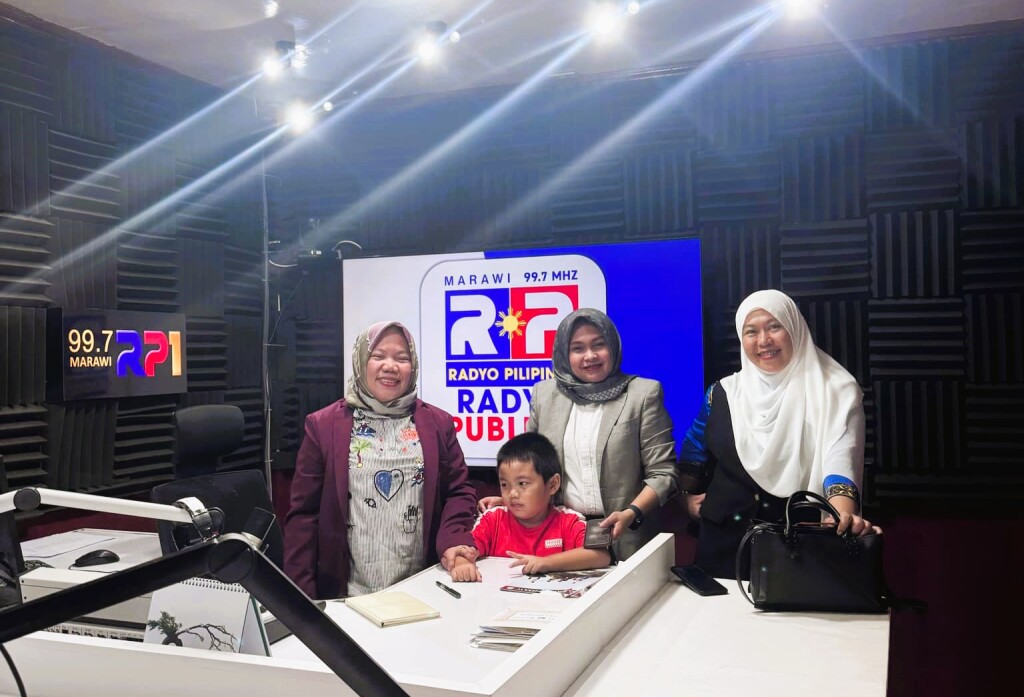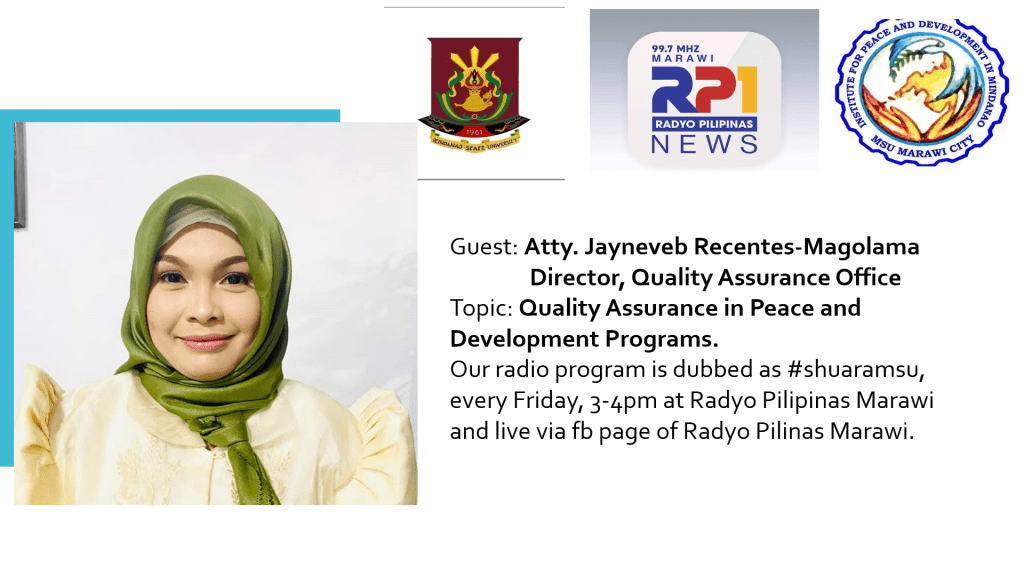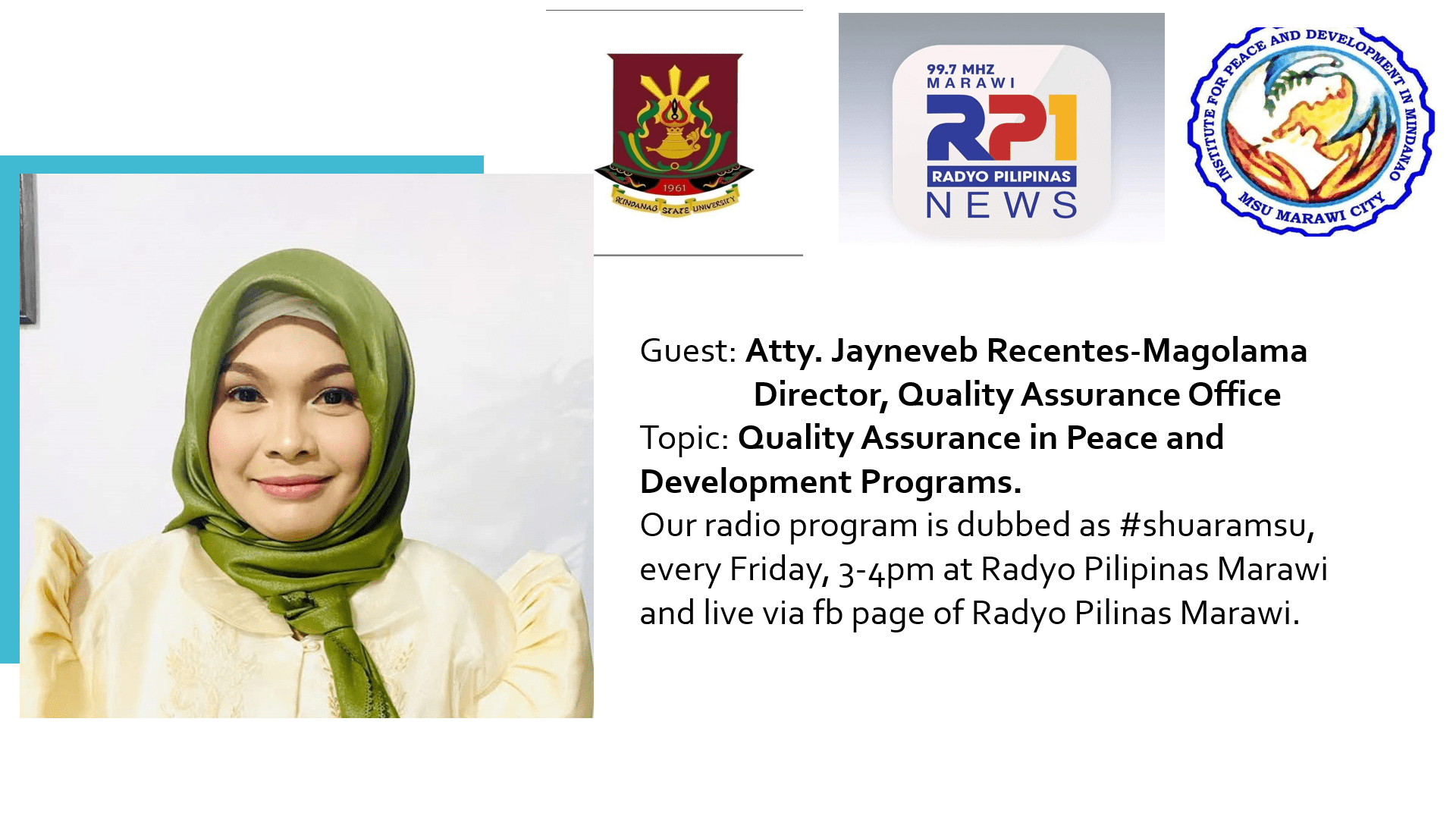By Aliah P. Cali-Pascan, DPA, JD
The pursuit of lasting peace and sustainable development requires more than good intentions; it demands a commitment to quality. On a recent episode of ShuaraMSU, a program of the Institute for Peace and Development in Mindanao (IPDM) aired on Radyo Pilipinas Marawi, host Dr. Aliah P. Cali-Pascan and Dr. Khayronesah Abbas engaged in a crucial discussion with Atty. Jayveneb Recentes Magolama, Executive Director of Quality Assurance Office about Quality Assurance in Peace and Development Programs at Mindanao State University (MSU). The conversation explored the practical application of quality principles, the unique challenges faced in this context, and the potential for improved outcomes.
The discussion began with defining “quality” in the complex arena of peace and development. Atty. Magolama emphasized that quality goes beyond simply implementing programs; it’s about ensuring those programs are effective, relevant, and contribute meaningfully to positive change. Key indicators of quality, he suggested, include demonstrable impact, community ownership, and sustainability. She stressed the importance of measuring progress not just in terms of outputs, but also in terms of long-term outcomes and the overall well-being of the communities served. The conversation then delved into specific quality assurance practices. Atty. Magolama highlighted the importance of robust monitoring and evaluation systems, emphasizing the need for data-driven decision-making. She explained how MSU utilizes various data collection methods, from quantitative surveys to qualitative focus group discussions, to gather information about program effectiveness. She also stressed the crucial role of stakeholder feedback mechanisms, ensuring that the voices of the communities are heard and incorporated into program design and implementation. Risk assessment, he noted, is another vital component, allowing programs to anticipate potential challenges and develop mitigation strategies. Ensuring data quality, she emphasized, is paramount, requiring rigorous protocols for data collection, analysis, and storage. The discussion didn’t shy away from the challenges inherent in implementing quality assurance in peace and development contexts. Atty. Magolama acknowledged the resource constraints, security issues, and cultural sensitivities that can complicate program implementation. She also pointed out the difficulties in collecting reliable data in conflict-affected areas. She explained how MSU addresses these challenges through strategic partnerships, community engagement, and adaptive management approaches. She cited an example of a peacebuilding program where community feedback led to significant adjustments in the program design, ultimately enhancing its impact. While she couldn’t disclose specific details due to confidentiality, the example highlighted how quality assurance, when implemented effectively, can lead to tangible improvements in program outcomes. Looking towards the future, the conversation explored emerging trends in quality assurance for peace and development. Atty. Magolama discussed the increasing use of technology, such as mobile data collection tools and online platforms, to enhance monitoring and evaluation processes. She also emphasized the growing recognition of the importance of local ownership and participation in ensuring program quality. She expressed optimism about the potential for improved quality assurance to contribute to more effective and sustainable peace and development initiatives.
The ShuaraMSU episode offered valuable insights into the critical role of quality assurance in peace and development programs. It underscored the importance of defining quality in meaningful terms, implementing robust monitoring and evaluation systems, and addressing the unique challenges faced in this field. By prioritizing quality, MSU and other organizations can ensure that their efforts truly contribute to building a more peaceful and prosperous future for Mindanao. The program served as a reminder that effective peacebuilding and development are not just about doing things, but about doing things well.
https://www.facebook.com/share/v/15nYJNSyht/?mibextid=wwXIfr



